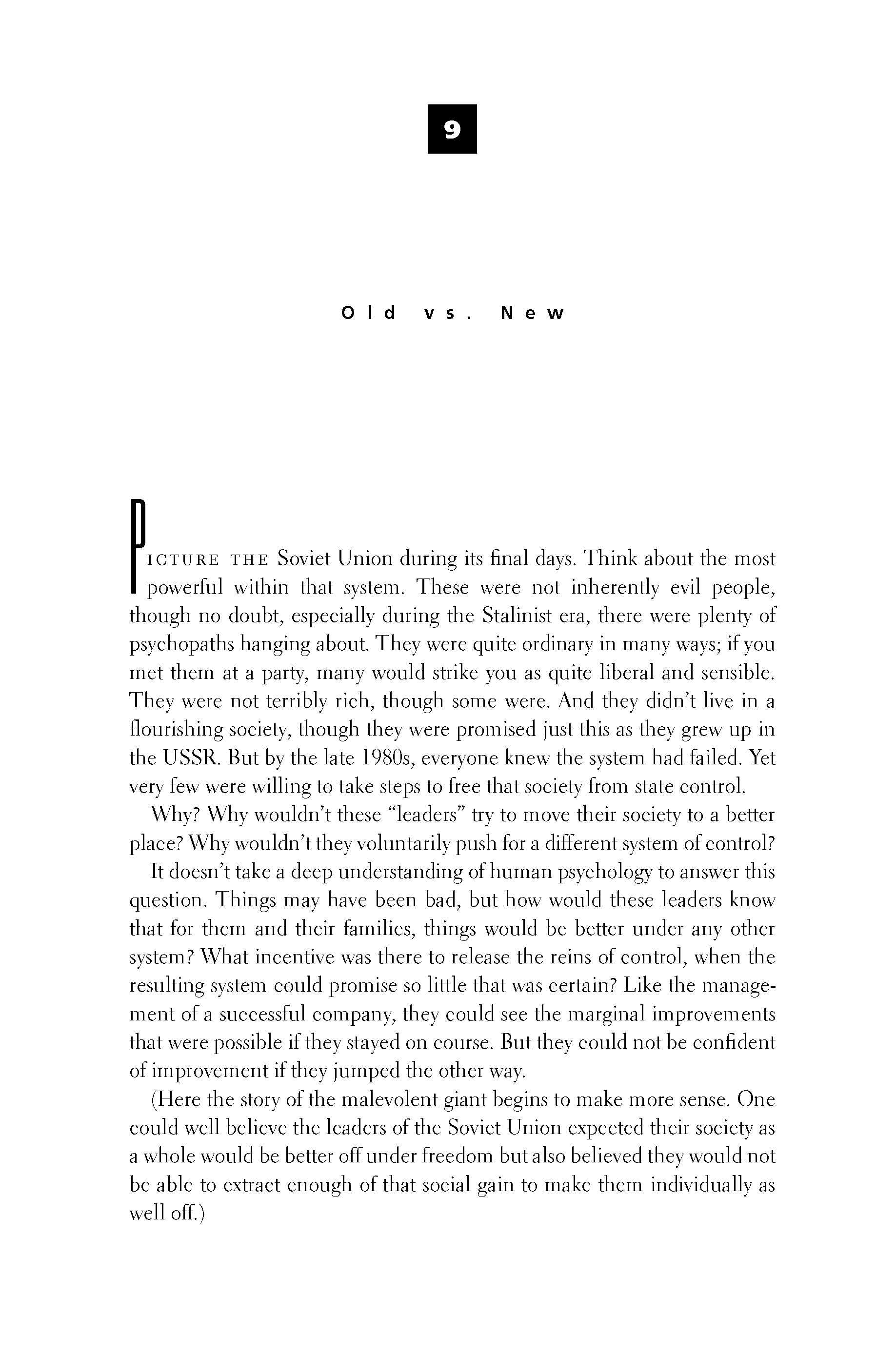 p144 _
-chap- _
toc-1 _
p145w _
toc-2 _
+chap+ _
p146
p144 _
-chap- _
toc-1 _
p145w _
toc-2 _
+chap+ _
p146
Picture the Soviet Union during its final days. Think about the most
powerful within that system. These were not inherently evil people,
though no doubt, especially during the Stalinist era, there were plenty of
psychopaths hanging about. They were quite ordinary in many ways; if you
met them at a party, many would strike you as quite liberal and sensible.
They were not terribly rich, though some were. And they didn't live in a
flourishing society, though they were promised just this as they grew up in
the USSR. But by the late 1980s, everyone knew the system had failed. Yet
very few were willing to take steps to free that society from state control.
Why? Why wouldn't these "leaders" try to move their society to a better
place? Why wouldn't they voluntarily push for a different system of control?
It doesn't take a deep understanding of human psychology to answer this
question. Things may have been bad, but how would these leaders know
that for them and their families, things would be better under any other
system? What incentive was there to release the reins of control, when the
resulting system could promise so little that was certain? Like the manage-
ment of a successful company, they could see the marginal improvements
that were possible if they stayed on course. But they could not be confident
of improvement if they jumped the other way.
(Here the story of the malevolent giant begins to make more sense. One
could well believe the leaders of the Soviet Union expected their society as
a whole would be better off under freedom but also believed they would not
be able to extract enough of that social gain to make them individually as
well off.)
[[145]]
p144 _
-chap- _
toc-1 _
p145w _
toc-2 _
+chap+ _
p146